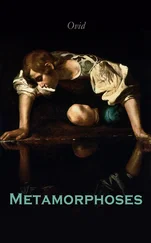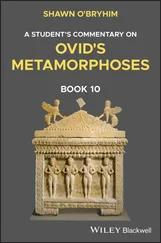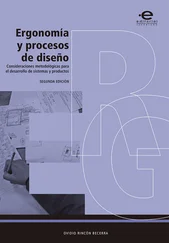Ovid - Fasti
Здесь есть возможность читать онлайн «Ovid - Fasti» — ознакомительный отрывок электронной книги совершенно бесплатно, а после прочтения отрывка купить полную версию. В некоторых случаях можно слушать аудио, скачать через торрент в формате fb2 и присутствует краткое содержание. Жанр: foreign_poetry, Поэзия, foreign_antique, foreign_prose, на латинском языке. Описание произведения, (предисловие) а так же отзывы посетителей доступны на портале библиотеки ЛибКат.
- Название:Fasti
- Автор:
- Жанр:
- Год:неизвестен
- ISBN:нет данных
- Рейтинг книги:3 / 5. Голосов: 1
-
Избранное:Добавить в избранное
- Отзывы:
-
Ваша оценка:
- 60
- 1
- 2
- 3
- 4
- 5
Fasti: краткое содержание, описание и аннотация
Предлагаем к чтению аннотацию, описание, краткое содержание или предисловие (зависит от того, что написал сам автор книги «Fasti»). Если вы не нашли необходимую информацию о книге — напишите в комментариях, мы постараемся отыскать её.
Fasti — читать онлайн ознакомительный отрывок
Ниже представлен текст книги, разбитый по страницам. Система сохранения места последней прочитанной страницы, позволяет с удобством читать онлайн бесплатно книгу «Fasti», без необходимости каждый раз заново искать на чём Вы остановились. Поставьте закладку, и сможете в любой момент перейти на страницу, на которой закончили чтение.
Интервал:
Закладка:
614. An oak-leaf garland, the symbol of protection, hung over the door of the Palatium; a laurel, the emblem of victory, stood on each side.
615. Tiberius, who bore the name of Augustus.
617-636. The Carmentalia were repeated on the 18th Kal. Feb. or the 15th of the month.
617. Actas , scil. exactas , past.
619. Matres . scil. Matronae .— Carpenta , the carpentum , was a covered two-wheel carriage. The etymon given by the poet is unworthy of attention.
629. Scortea , things made of skin or leather.
631. Precanti , by any one who is praying.
633. Porrima. This goddess is so named only in this place, and by Servius, on aen. viii. 336. Macrobius (Sat. I. 7.) calls her Antevorta. Varro, apud . A. Gellius (N. A. xvi. 6.) speaking of women who had a difficult labour, says, hujus periculi deprecandi causa arae statutae sunt Romae duabus Carmentibus; quarum altera Postverta nominata est, Prosa (alii Prorsa) altera; a recti perversique partus et potestate et nomine . We have here the true meaning of this feast of the Carmentalia, about which our poet has been puzzling.
634. Nympha , scil. Carmenta. Virg. aen. viii. 336. Thus Homer, (II. in. 130,) calls Helen a nymph . See Mythology, p. 206, note. For nympha , in this place, eight MSS. read diva .
635. Porro , usually denotes the future; in this place, it evidently denotes the past. Burmann knows no other instance of its occurrence in this sense.
637. On the following day, the xvii. Kal. Feb. the most ancient of the five temples of Concord at Rome, had been vowed, A.U.C. 386, by L. Furius Camillus. It was repaired and dedicated anew by Tiberius, A.U.C. 762. The temple of Juno Moneta ( Warner ) stood on the site of the house of Manlius on the Capitol; a flight of 100 steps led from the temple of Concord up to it.— Candida lux , auspicious day, as being that on which the temple of Concord was dedicated.— Niveo , as being built of marble.
639. The temple being on the side of the Capitol over the Forum.
640. Sacratae manus of Tiberius. Every thing belonging to the emperor was sacratum and sanctum .
641. Antiquum , scil. templum? Neapolis, I think is wrong, in taking antiquum to be used adverbially for olim , and joining it with pop. sup. Etr . Burmann, as he enclosed it in brackets, also understood it adverbially. Antiquum , which is unquestionably the right reading, is that of only three MSS. The others read antiquam or antiquus , or antiqui or antiquo .— Populi , etc. merely a designation of Furius, and has nothing to do with the occasion of the vow,— Ante , olim.
643. On the occasion of the Licinian rogations. Niebuhr, on this subject, prefers the authority of Ovid to that of Livy, who says, Prope ad secessionem.—venit .
644. Opes , the Plebeians.
645. A compliment to Tiberius. The first temple was built in consequence of civil discord; the second, in consequence of victories gained over the most formidable foes of Rome.— Passos , etc. Germany (i.e. the Germans) holds forth her dishevelled locks, vanquished by the Roman arms, under thine auspices. Jam tibi captivos mittet Germania crines; Culta triumphatae munere gentis eris , says our poet (Am. I. 14,) to a lady, as the false hair used at Rome mostly came from Germany. Nations, when conquered, were said porrigere , to surrender, those things for which they were distinguished. Thus he says, (Trist. II. 227,) Nunc porrigit arcus Parthus eques timida captaque manu , see below, V. 593. It is therefore supposed, that a condition of the peace was the delivery of a large quantity of hair for the use of the Roman wig-makers. There is nothing very sublime in this.
646. Dux , Tiberius.
647. Libasti , You have offered.
648. Quam colis ipse , by your love of peace.
649. Haec . scil. templa. This place is very obscure. Some MSS. read hanc.—Rebus , the commentators say, by the harmony in which she lived with Augustus.— Ara , by an altar, which they suppose she placed in the temple of Concord.
650. Magni Jovis , Augustus, the vicegerent of Jove on earth.
651. The passage of the sun into Aquarius, the xvi. Kal. Feb.— Haec . scil. tempora. The first editions, and two MSS. read transieris . Two other MSS. read transierit , which I should incline to prefer, and make haec refer to dies or to lux , v. 637. Heinsius would read Nox , or Lux ubi transierit .
653, 654. On the 10th Kal. Feb. Lyra sets heliacally.— Oriens , scil. Sol.
655, 656. The following day (Jan. 24,) Regulus, the bright star in the breast of the Lion, sets cosmically. The poet is mistaken here; according to Colunnella, he sets on the 27th of January.
657, 658. The Romans (see Macrob. Sat. I.) had two kinds of festivals, the Stativae and the Conceptivaae . The former were fixed to certain days, and were marked in the Fasti; such were the Agonalia, Carmentalia, Lupercalia, etc.: the latter were annually given out, ( indicebantur ) for certain, or even uncertain days, by the magistrates or priests; such were the Feriae Latinae, the Paganalia, Sementinae, Compitalia, etc. Seven MSS. read Sementinae ; seven read Sementiva ; twelve Sementita . Sementinae (seu vae) feriae: dies is appellatus a Sementi, quod Sationis causa susceptae . Varro. L. LV.
661. The time was well known, but not the exact day.
669. Pagus . Servius Tullius divided the Roman territory into Pagi . In each Pagus was an altar, on which a common sacrifice was offered every year by the Pagani , or people of the Pagus. This festival was called the Paganalia. The origin of our word Pagan, is curious. As the country people held out longest against Christianity, Pagan became equivalent to heathen, and we find it at last applied to Mohammedans!— Lustrate , by leading the victims round it. See Virg. G. I. 339, et seq . Ovid here follows Tibullus, Eleg. II. 1.
670. Liba , [Greek: pelanoi], cakes brought by the different families of the pagus .
675. Consortes operum , Ceres and Tellus.
693. The ancients parched the far before they ground it. It was afterwards baked.
701. Tuae scil. Germanici.— Religata , etc. Virg. aen. I. 291. et seq .
707. A.U.C. 769. Tiberius built a temple to Castor and Pollux, which he inscribed with his own name, and that of his brother Drusus.— Gente Deorum , the Caesarian family.
709, 710. The Romans erected no altar to Peace until A.U.C. 741. Sacrifices were offered on it on the 30th of January and of March.
711. Actiacis . Because the battle of Actium gave peace to the world. There is an allusion to Apollo Actius, and the laurel.
717. Primus , the near.
721. Domus , the Caesarian family.
LIBER II
Janus habet finem: cum carmine crescit et annus.
Alter ut hinc mensis, sic liber alter eat.
Nunc primum velis, elegi, majoribus itis:
Exiguum, memini, nuper eratis opus.
Ipse ego vos habui faciles in amore ministros, 5
Quum lusit numeris prima juventa suis.
Idem sacra cano, signataque tempora fastis.
Ecquis ad haec illuc crederet esse viam?
Haec mea militia est: ferimus, quae possumus, arma,
Dextraque non omni munere nostra vacat. 10
Si mihi non valido torquentur pila lacerto,
Nec bellatoris terga premuntur equi,
Nec galea tegimur, nec acuto cingimur ense:
—His habilis telis quilibet esse potest—
At tua prosequimur studioso pectore, Caesar, 15
Nomina, per titulos ingredimurque tuos.
Ergo ades, et placido paulum mea munera vultu
Respice, pacando si quid ab hoste vacas.
Februa Romani dixere piamina patres:
Nunc quoque dant verbo plurima signa fidem. 20
Pontifices ab Rege petunt et Flamine lanas,
Quîs veteri lingua Februa nomen erat;
Quaeque capit lictor domibus purgamina certis,
Torrida cum mica farra, vocantur idem.
Nomen idem ramo, qui caesus ab arbore pura 25
Casta sacerdotum tempora fronde tegit.
Ipse ego Flaminicam poscentem februa vidi:
Februa poscenti pinea virga data est.
Denique quodcumque est, quo pectora nostra pientur,
Hoc apud intonsos nomen habebat avos. 30
Mensis ab his dictus, secta quia pelle Luperci
Omne solum lustrant, idque piamen habent;
Aut quia placatis sunt tempora pura sepulcris,
Tunc quum ferales praeteriere dies,
Omne nefas omnemque mali purgamina causam 35
Credebant nostri tollere posse senes.
Graecia principium moris fuit. Illa nocentes
Impia lustratos ponere facta putat.
Actoriden Peleus, ipsum quoque Pelea Phoci
Caede per Haemonias solvit Acastus aquas. 40
Vectam frenatis per inane draconibus aegeus
Credulus immerita Phasida juvit ope.
Amphiaraïdes Naupactoo Acheloo,
Solve nefas, dixit. Solvit et ille nefas.
Ah nimium faciles, qui tristia crimina caedis 45
Fluminea tolli posse putetis aqua!
Sed tamen—antiqui ne nescius ordinis erres—
Primus, ut est, Jani mensis et ante fuit.
Qui sequitur Janum, veteris fuit ultimus anni;
Tu quoque sacrorum, Termine, finis eras. 50
Primus enim Jani mensis, quia janua prima est;
Qui sacer est imis Manibus, imus erat.
Postmodo creduntur spatio distantia longo
Tempora bis quini continuasse Viri.
Интервал:
Закладка:
Похожие книги на «Fasti»
Представляем Вашему вниманию похожие книги на «Fasti» списком для выбора. Мы отобрали схожую по названию и смыслу литературу в надежде предоставить читателям больше вариантов отыскать новые, интересные, ещё непрочитанные произведения.
Обсуждение, отзывы о книге «Fasti» и просто собственные мнения читателей. Оставьте ваши комментарии, напишите, что Вы думаете о произведении, его смысле или главных героях. Укажите что конкретно понравилось, а что нет, и почему Вы так считаете.












